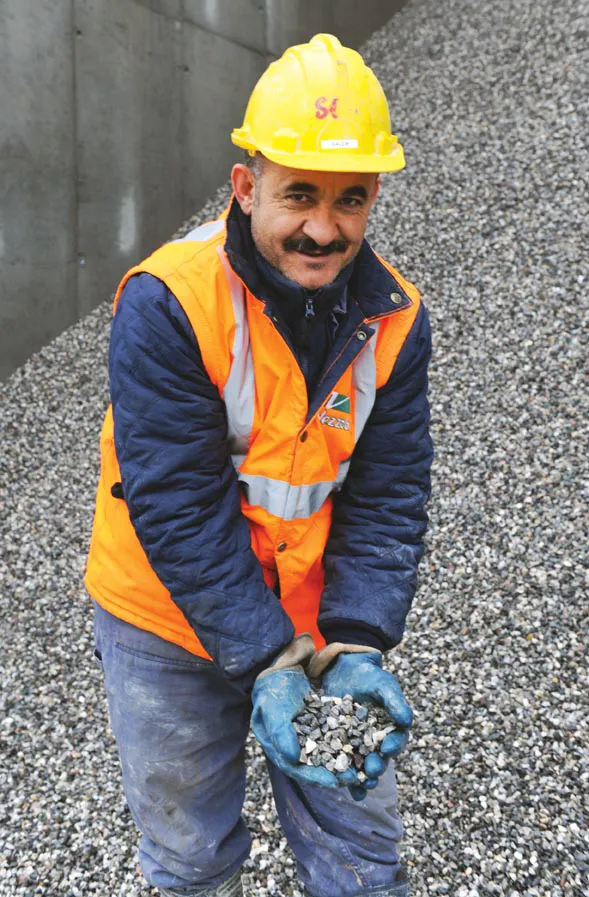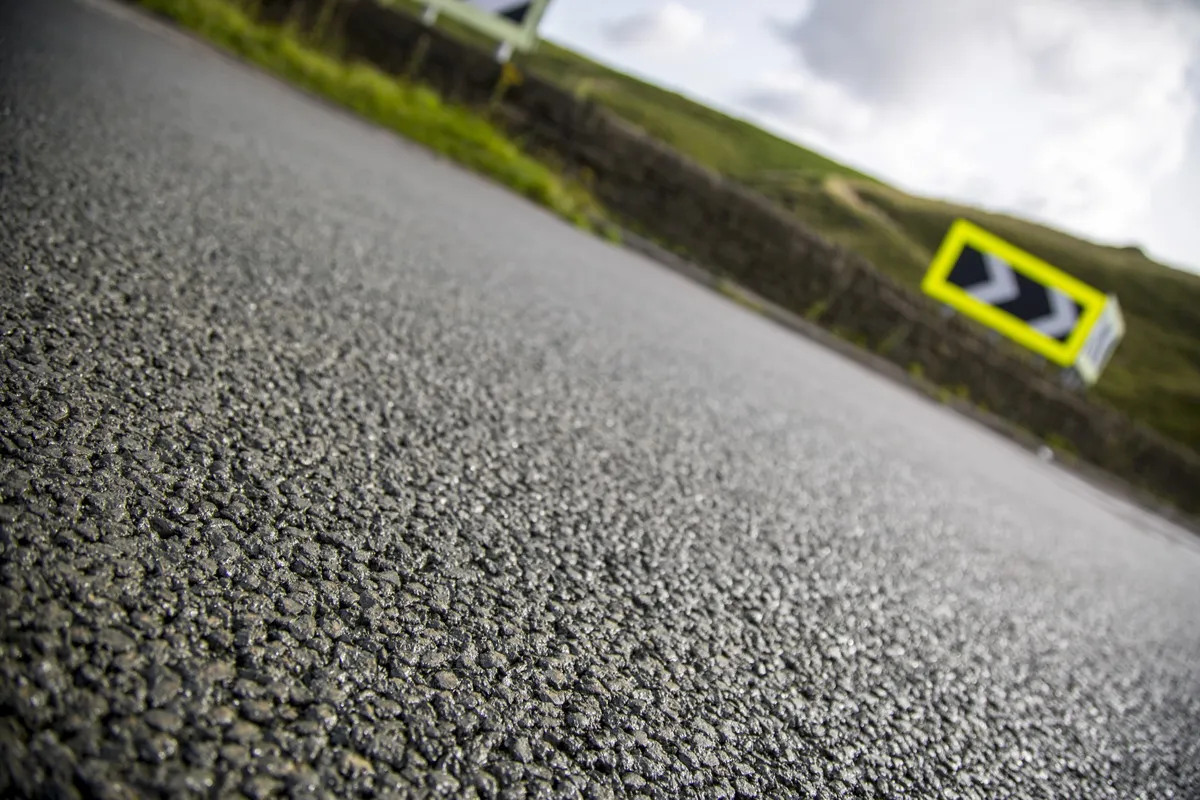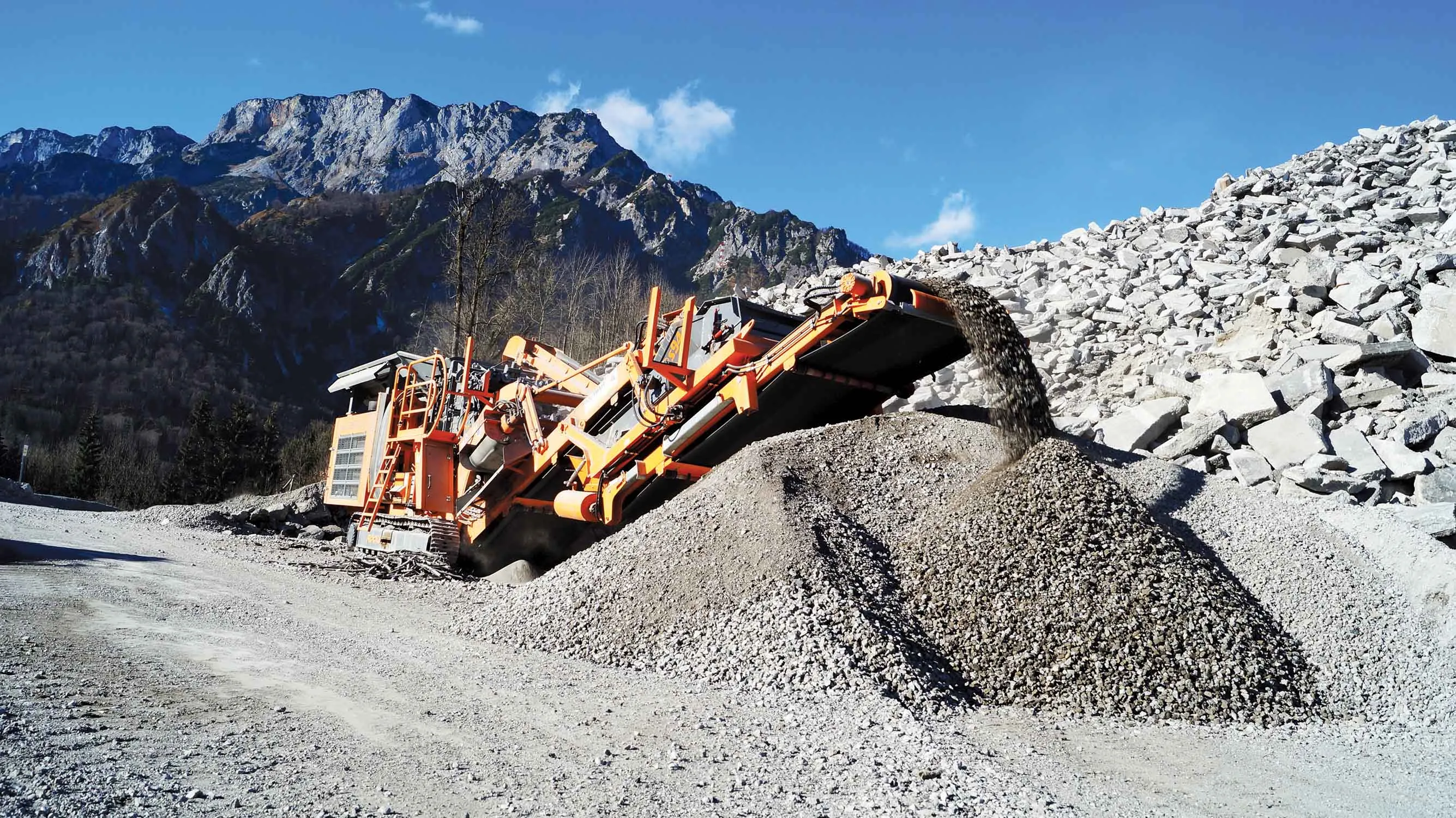Turning aggregates production into a truly industrial process and providing customers with accurately fine-tuned aggregates mixes is the secret behind the success of Vezzola, a family-owned company with operations in Italy's Lake Garda region. Vezzola's fully-equipped stationary plant in Montichiari, probably the country's most modern facility of this type, can produce up to 500 different aggregates recipes. The plant is another successful delivery by Metso's Mining and Construction Technology. Processing s
July 9, 2012
Read time: 3 mins

Turning aggregates production into a truly industrial process and providing customers with accurately fine-tuned aggregates mixes is the secret behind the success of Vezzola, a family-owned company with operations in Italy's Lake Garda region.
Vezzola's fully-equipped stationary plant in Montichiari, probably the country's most modern facility of this type, can produce up to 500 different aggregates recipes. The plant is another successful delivery by6934 Metso's Mining and Construction Technology.
Processing sand and gravel, the Montichiari plant features a complete crushing, screening and washing installation including feeders, crushers and screens, conveyors and plant automation. Annual plant output totals 400,000 tonnes of high quality aggregates.
Founded 42 years ago by Giovanni Vezzola, the family business has grown steadily over the years. In addition to four active quarries, the company's 120 employees are engaged in operations within concrete and asphalt production, and in construction activities.
Giovanni is still the company's president, and his son Stefano is CEO. A third generation is on its way: Mario, Stefanos's son, is already working within the company's technical department.
Quarries have been a playground for most members of the Vezzola family. Stefano Vezzola does not draw any distinction: his first task was to transport aggregates to customers on Saturdays and collect the payments.
In 2007, Vezzola invoiced a record e53 million (US$74 million). Currently, the company is making preparations for the future and the next economic upturn. Vezzola personnel are offered a training programme that includes 600 hours of instruction.
"When economic conditions are tight, optimised performance and supplying consistent high quality end products are crucial. Successful operation of our new Metso plant plays an essential role in achieving this," says Stefano Vezzola.
"According to our new philosophy, the new Montichiari operation is not a quarry but an industrial operation providing our customers with better quality and an improved selection of end products," he adds.
Operating in four quarries, Vezzola makes good use of the possibilities offered by its different locations. Lonato de Garda, the oldest quarry, is now only used for recycling slag and concrete and for stockpiling aggregates. Vezzola's recycling operations utilise two Lokotrack jaw plants.
New quarries in Montichiari, Gussola and Manerda del Garda are the main sites for Vezzola's aggregates production. As well as utilising its own sand and gravel reserves, materials are transported to the Montichiari quarry from nearby sites.
Vezzola's annual production totals 1million m³, half of which is sold outside the company.
The Montichiari plant features several options for protecting the environment including a total of 2,000 plants which have been placed around the quarry area.
Vezzola's fully-equipped stationary plant in Montichiari, probably the country's most modern facility of this type, can produce up to 500 different aggregates recipes. The plant is another successful delivery by
Processing sand and gravel, the Montichiari plant features a complete crushing, screening and washing installation including feeders, crushers and screens, conveyors and plant automation. Annual plant output totals 400,000 tonnes of high quality aggregates.
Founded 42 years ago by Giovanni Vezzola, the family business has grown steadily over the years. In addition to four active quarries, the company's 120 employees are engaged in operations within concrete and asphalt production, and in construction activities.
Giovanni is still the company's president, and his son Stefano is CEO. A third generation is on its way: Mario, Stefanos's son, is already working within the company's technical department.
Quarries have been a playground for most members of the Vezzola family. Stefano Vezzola does not draw any distinction: his first task was to transport aggregates to customers on Saturdays and collect the payments.
In 2007, Vezzola invoiced a record e53 million (US$74 million). Currently, the company is making preparations for the future and the next economic upturn. Vezzola personnel are offered a training programme that includes 600 hours of instruction.
"When economic conditions are tight, optimised performance and supplying consistent high quality end products are crucial. Successful operation of our new Metso plant plays an essential role in achieving this," says Stefano Vezzola.
"According to our new philosophy, the new Montichiari operation is not a quarry but an industrial operation providing our customers with better quality and an improved selection of end products," he adds.
Operating in four quarries, Vezzola makes good use of the possibilities offered by its different locations. Lonato de Garda, the oldest quarry, is now only used for recycling slag and concrete and for stockpiling aggregates. Vezzola's recycling operations utilise two Lokotrack jaw plants.
New quarries in Montichiari, Gussola and Manerda del Garda are the main sites for Vezzola's aggregates production. As well as utilising its own sand and gravel reserves, materials are transported to the Montichiari quarry from nearby sites.
Vezzola's annual production totals 1million m³, half of which is sold outside the company.
The Montichiari plant features several options for protecting the environment including a total of 2,000 plants which have been placed around the quarry area.









